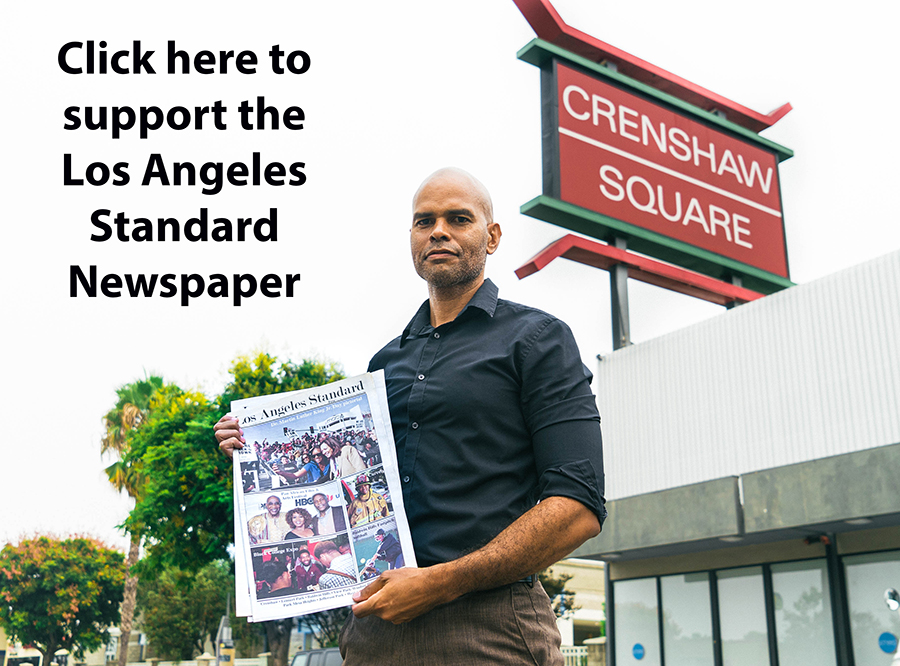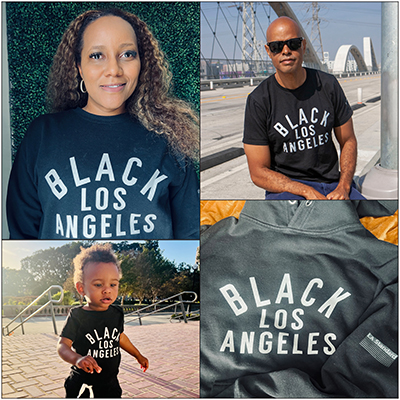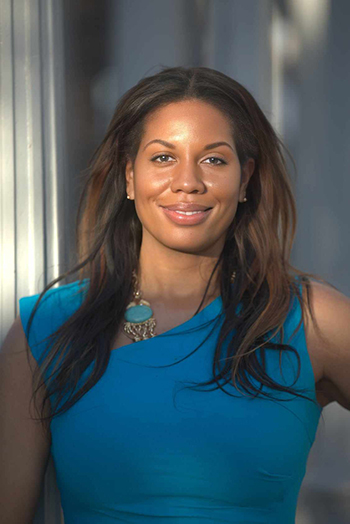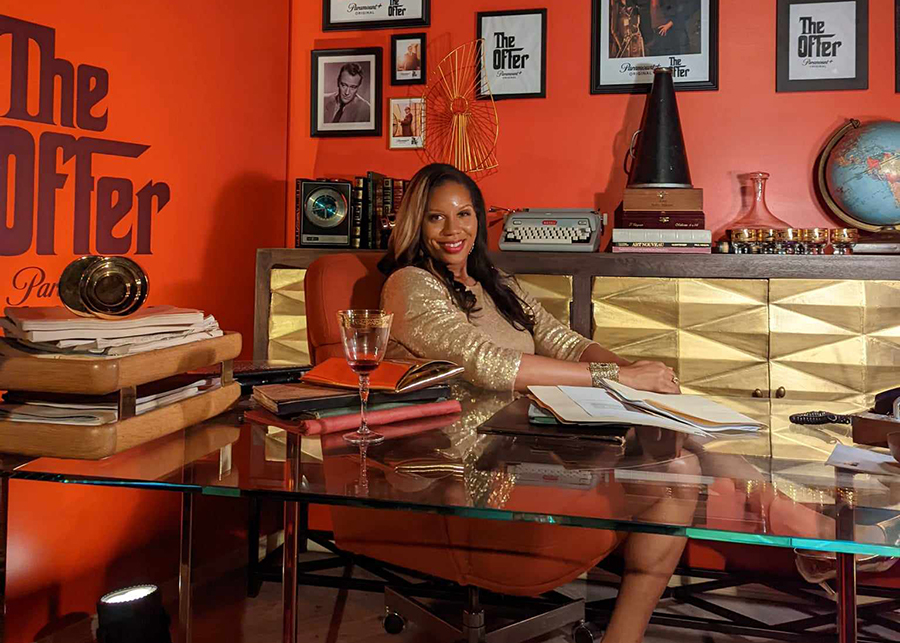Descieux, a Southern University graduate, has negotiated labor contracts for some of the top companies in the entertainment industry, and she has enjoyed her time attending star-studded and industry events.



By Jason Lewis
Attorney Nalinya Descieux’s career in Los Angeles has led her to some very glamorous entertainment events, including Hollywood award shows, private film screenings, and networking events with the major players in the entertainment industry. She has been able to interact with celebrities and some of the most powerful people in Los Angeles while negotiating labor agreements between major corporations and labor unions.
As a labor attorney, Descieux has worked for Universal Music Group, 20th Century Fox Television, the Screen Actors Guild, Saatchi & Saatchi, the Walt Disney Company, USC, and Paramount Pictures.
Growing up in Baton Rouge, Louisiana, Descieux was raised in a Southern University family, and that was the right college for her to attend.
“I needed to be in an HBCU (Historically Black Colleges and Universities) where I could see people like me excelling,” she said. “People like me who were very talented. Who had different perspectives because they were from all over the world. I had classmates from Africa and India.”
Descieux did not know what she wanted to be when she grew up, but she did know that she wanted to live a similar financial lifestyle that she grew up in, so after graduating from Southern University, she attend Loyola University New Orleans College of Law.
As a third generation Southern University athlete who is in the university’s hall of fame as a volleyball player, and as an avid sports fan, Descieux thought about becoming a sports attorney, but she decided to specialize in international human rights law.
Descieux moved to Los Angeles in the early 2000s and she landed her first job out of law school at Universal Music Group, which had just acquired different music labels, including Geffen Records and Interscope Records. She was hired to review the intellectual property rights that Universal Music Group had just acquired.
Moving to Los Angeles from the South was a bit of a culture shock, but it was not long before she found people who looked like her.
“Honestly, when I first got to L.A., I had to ask another Black person, ‘Where do you find Black people here?’ And then I was introduced to South L.A.,” she said. “There are a lot of Southernites here in L.A.”
Working at Universal Music Group was a short-term job, and in 2004, she was hired by the Screen Actors Guild. This is where she learned the ins and outs of the entertainment industry.
“It was the best way, going in knowing absolutely nothing about entertainment, meeting the brilliant people there, and you learn everything about entertainment because you get to deal with all of the different studios,” Descieux said. “You have a birds-eye view of studio operations. That knowledge and experience makes you really valuable in the entertainment marketplace.”
Descieux moved on to working for Saatchi & Saatchi, a world-leading advertising firm, and then 20th Century Fox Television as the manager of legal affairs. She ensured that the company was in compliance with the Screen Actors Guild, the Writers Guild, and the Directors Guild, which all have specific requirements about how the rolling credits were laid out. She also kept track with all of the options on the applicable contracts to renew them in a timely manner.
In 2011, Descieux was hired by the Walt Disney Company as the manager of labor relations of the Disneyland Resort.
“It was kind of like working for a miniature city,” she said. “There are so many different types of employees. There are the singers and the dancers. There are carpenters, plumbers, electricians, engineers. There are corporate people as well.”
The amusement park and resort have over 26,000 employees, 33 unions, and 16 collective bargaining agreements.
“Our days were filled with fielding grievances,” Descieux said. “And interfacing a great deal with the executives; giving them advice on how to administer the collective bargaining agreement.”
After working for the Walt Disney Company for five years, Descieux moved on to work labor relations at USC for three years, but she wanted to get back into the entertainment industry.

“I really do miss my first love in entertainment,” she said. “I was still going to Image Award screenings and all of the various award season activities. And I really wished that I was a part of this industry again.”
After leaving USC in 2018, Descieux started working at Paramount Pictures as the vice president, head of casting legal affairs.
“I was the dedicated legal executive for all matters concerning the casting process,” she said. “Every time our casting department needed guidance or needed contracts, even negotiations with agents, we did everything for the pre-production process, the production process, and the post production process. We coordinated all of the business legal affairs, labor relations, and human resources.”
After nearly five years at Paramount, Descieux has moved on and is awaiting the next chapter in her career. Reflecting on her amazing work history, she discussed why it’s important to have Black people in the positions that she has held.
“In any workplace, diversity is very important,” she said. “Even more so in media, because the media is responsible for representing people. People need to meet different types of people in order to have or keep some sense of open mindedness. There were a few workplaces where I was one of two Black people there. Some of the things that I would hear, especially in human resources conversations and executive conversations, I felt that my presence kind of shocked everybody into a global reality. Like, ‘No, we’re not just doing the things that we do just for White people.’ There are people all over the place who need representation. The people in the labor relations roles that I would meet would come to me specifically because they felt that I was the only person there who could understand what they were going through, and might actually help them. Black people are needed everywhere. We’re needed in every workplace, especially if those workplaces are making products or making media to cater to the entire world.”
For Descieux, working in the entreatment industry has been fascinating, and she’s come to find out that celebrities are just like everybody else.
“I used to get really nervous about that (interacting with celebrities) until I realized that I’ve helped to negotiate these people’s contracts,” she said. “I’ve seen the things that they’ve had to do everyday. Then you realize that these people are literally just like us. There’s no difference between them and me. If you prick them they will bleed. If you tickle them, they’ll laugh. Like, the whole Shakespearian diatribe there. It’s just immersing yourself into a role and doing the best you can do. And then you look over and you see somebody who happens to be probably more good looking and way more talented. But in front of the camera they’re doing the best job that they can do so that they can keep getting jobs. There’s a humanity there.”
While Descieux’s jobs have been a lot like anybody else’s jobs, the allure of the entreatment industry from the inside is still fascinating.
“It’s fun to get dressed up, go to the parties, get the free food, and all of that,” she said. “For me that will never get old. But you just see the process.”








